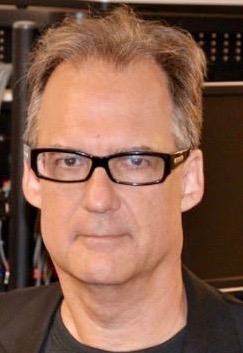
Phil Farnsworth
Michael Bierylo
For media inquiries, please contact Media Relations
Michael Bierylo is an electronic musician, guitarist, composer, and sound designer. He was a faculty member at Berklee College of Music since 1995 and is chair emeritus of the Electronic Production and Design Department. He is also active with Berklee Online, Berklee’s online school, where he coauthors and teaches music technology courses.
Bierylo has performed throughout the U.S. at venues as diverse as the Knitting Factory, Honolulu Academy of Arts, Duke and Emory universities, and Dartmouth College as a member of Birdsongs of the Mesozoic. Bierylo's compositions are featured on the releases Dancing on A'A, Petrophonics, The Iridium Controversy, and Extreme Spirituals, all on Cuneiform Records. As a solo electronic artist, Bierylo has performed with a laptop computer and modular synthesizers in the U.S., Germany, China, and Poland, including at the DAT Festival, the Shanghai Electronic Music Festival, the Krakow Audio Art Festival, and at concerts with Grammy-nominated electronic musician BT and Terence Blanchard. His composition “Koralate" appeared on The $100 Guitar Project.
Bierylo's commercial work includes music and audio production for Hasbro Interactive, the Smithsonian, Nickelodeon, and the Oxygen Network, as well as music and sound design for the Incredible Hulk attraction at Universal's Islands of Adventure. As a commercial composer, Bierylo's work has been featured on A&E's Biography, the Learning Channel, and Martha Stewart Living. Recent projects include work on the films Granito, The Reckoning, and Traces of the Trade, all featured at the Sundance Film Festival.
- Guitarist, composer, programmer, and sound designer in Birdsongs of the Mesozoic, with performances throughout the U.S.
- Artist in residence at Dartmouth College, Emory University, and Duke University, among others
- Album credits include Life Line as a solo artist, Dancing on A'A (Cuneiform Records), guitar and MIDI production on Sama Yie by Senegalese musician Ibrahima Camara, and music for the Sonoton Music Library
- Owner and operator of Virtual Planet, a desktop audio studio, with clients such as Hasbro Interactive, Nintendo, MSNBC, Nickelodeon, and VH1, among others
- Commercial music credits include scoring and sound design for The Box, Creatures in a Wood, and postproduction audio supervision for New Nation
- Chair Emeritus, Berklee College of Music
